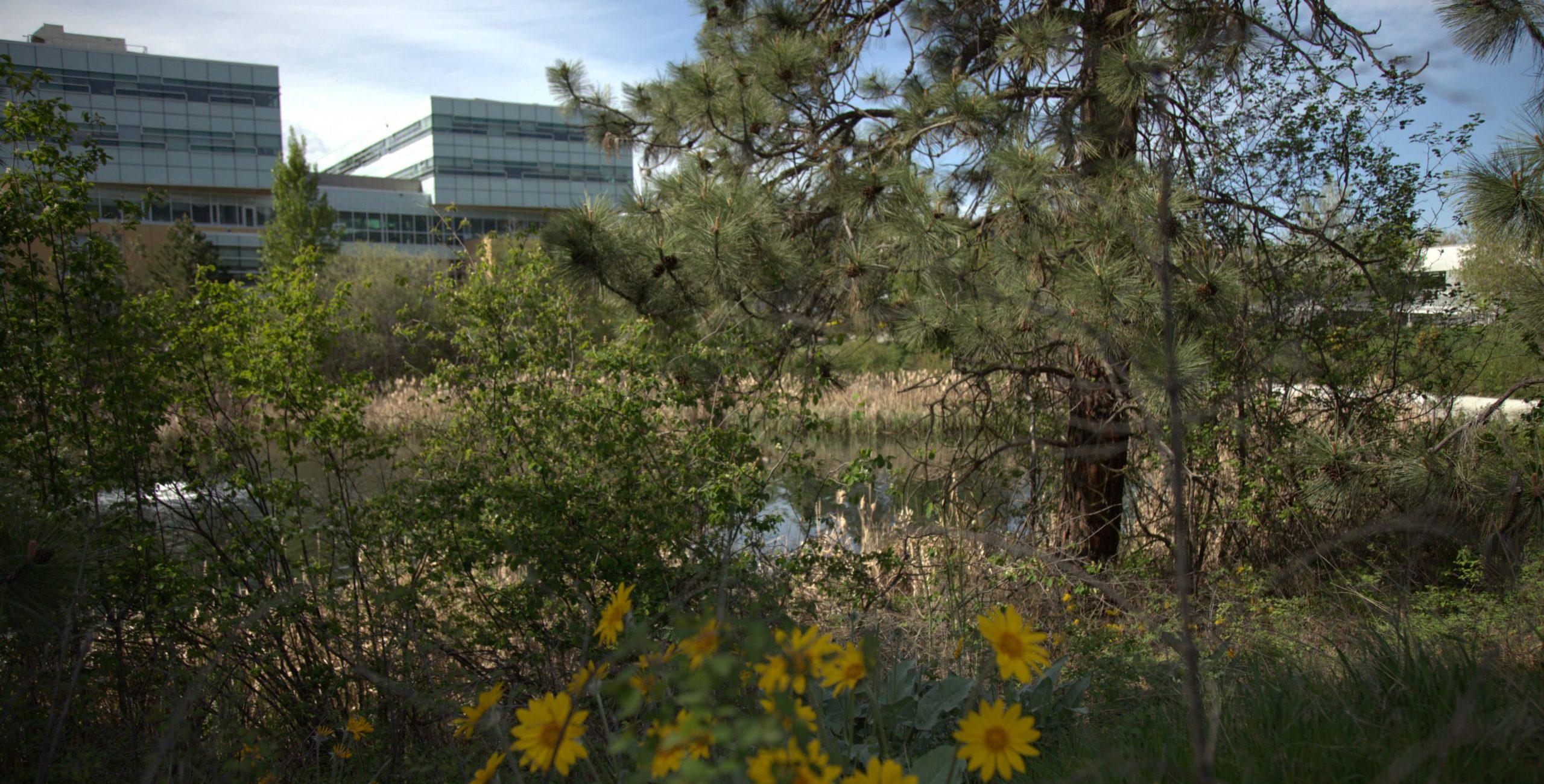Climate Action Plan 2030
Bold ambition. Collective action.
UBC Okanagan is committed to accelerating greenhouse gas (GHG) emission reductions to address the climate emergency. The UBC Okanagan Climate Action Plan (CAP) 2030 outlines our strategy to significantly cut emissions from campus operations and broader activities like commuting, food systems, waste, and air travel.
Key targets
- 65 per cent reduction in campus operational emissions by 2030.
- 45 per cent reduction in emissions from commuting, food, waste and air travel by 2030.
- Achieve net positive in operational energy and carbon by 2050.
Focus areas
- Campus operations: Transition to low-carbon energy sources and enhance energy efficiency.
- Commuting: Promote sustainable transportation options to reduce travel-related emissions.
- Food systems: Implement climate-friendly food procurement and waste reduction strategies.
- Waste and materials: Apply circular economy principles to minimize waste and promote reuse.
- Business air travel: Encourage alternatives to air travel and offset unavoidable emissions.
- Embodied carbon: Reduce emissions from construction materials through sustainable building practices.
Official documents and resources
- UBCO CAP 2030 Plan (PDF)
- UBCO CAP 2030 Hub (website)
- UBCO CAP 2030 at a glance (storymaps)
- UBCO CAP 2030 news release (website)
- UBCO Engagement Summary Report (PDF)
- UBCO CAP 2030 engagement presentation (video)
Implementation projects
Implementation projects put CAP 2030 into action, targeting Scope 1, Scope 2 and extended emissions.
UBC Okanagan’s Climate Adaptation, Resilience and Biodiversity Strategy outlines a comprehensive set of actions to help the campus adapt to climate risks, enhance community and infrastructure resilience, as well as protect local biodiversity.
Developed through extensive research and stakeholder engagement, the strategy identifies four pathways, 12 priority areas and 57 actions to strengthen the campus’ ability to respond to climate change.
As a unifying framework, it also connects efforts across UBCO’s existing plans and policies to support both adaptation and mitigation goals.
This project aimed to develop baseline inventories of both food offerings and food waste at UBC Okanagan and to provide an estimate of the associated GHG emissions.
This report addresses local operational needs and provides insight into the significant and cost-effective opportunities available for mitigating food-related GHG emissions on the UBC Okanagan campus.
A SEEDS study was conducted to review air travel habits of the Okanagan campus community and provide a set of recommended actions to support the reduction of related emissions.
This report identifies how community engagement strategies formed and lessons learned during the global pandemic can help guide communities to take action against climate change.
Get involved
To see the CAP 2030 in action and learn how you can contribute to a sustainable campus, explore our Power of You programs and keep an eye out for future events.
